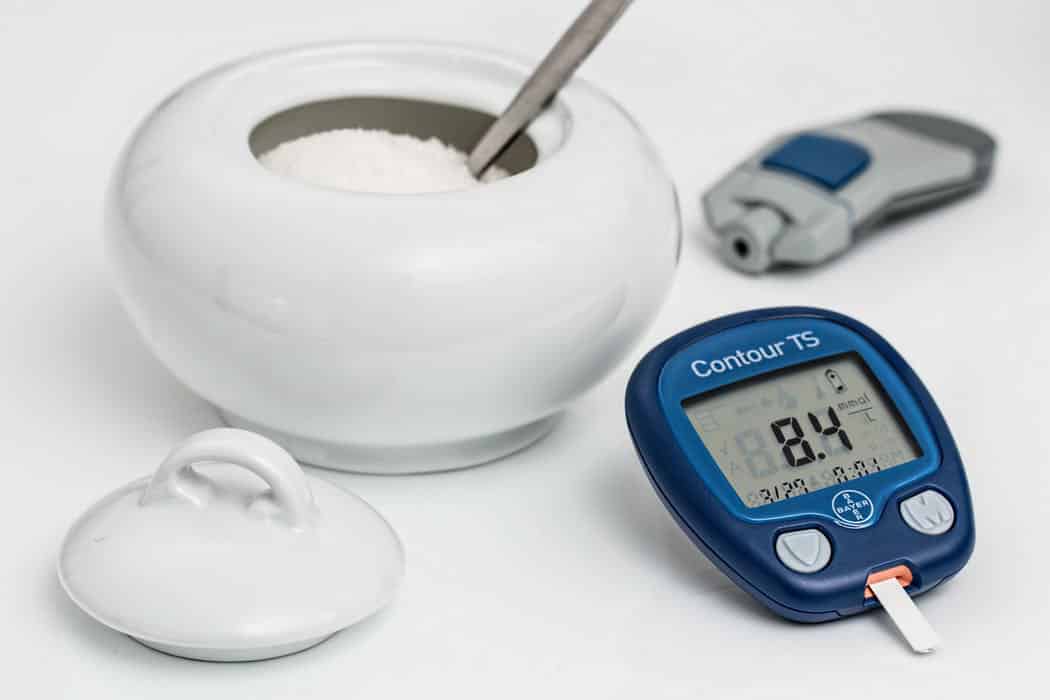Is High Insulin and Insulin Resistance Sabotaging Your Weight Loss? (and What Can You Do About It?)

Living with chronically high insulin, which occurs when you become “insulin-resistant,” can make everything seem more difficult.
Insulin levels naturally and constantly fluctuate. The problem occurs when insulin resistance causes the body to produce more insulin in order to manage blood sugar levels.
Not only is weight loss often more challenging with insulin resistance, but it can affect blood sugar levels and lead to a number of health issues, including fatigue, weakness, confusion, headaches, irritability, mood issues, dizziness, trouble concentrating and more.
Did you know that a ketogenic diet plan can help you not only increase your insulin sensitivity and lose more weight, but gain greater focus and awareness, too?
Before we get into how the keto diet can help alleviate many of the negative side-effects of high insulin (including insulin resistance), let’s consider how low insulin sensitivity and chronically high insulin may be sabotaging your weight loss efforts.
Curious if hypnosis could help you lose weight?
Take our hypnotizability test and find out!
How Does Insulin Sabotage Weight Loss?
Insulin is an essential hormone that helps your body absorb nutrients and store energy. As such, it could be having a huge effect on your weight loss.
So, how does insulin work?
 Whenever you eat foods with carbohydrates or sugars, your blood sugar increases. Your pancreas responds by secreting insulin. Insulin’s job is to transport sugar out of the bloodstream and into your muscles and liver, which can store sugar for energy. This helps regulate your body’s blood sugar.
Whenever you eat foods with carbohydrates or sugars, your blood sugar increases. Your pancreas responds by secreting insulin. Insulin’s job is to transport sugar out of the bloodstream and into your muscles and liver, which can store sugar for energy. This helps regulate your body’s blood sugar.
Another function of insulin is to direct your body to store the food you eat as fat. This is essential in order to have fuel to survive when food is scarce.
But if your insulin levels are chronically elevated as a result of insulin resistance, you could be storing more fat than is needed (or desired). What’s worse is high insulin levels also inhibit your body’s ability to use stored fat as energy, making it hard to lose weight.
Another way insulin can mess up your weight loss efforts is what happens when it’s too low.
Most weight loss regimens have you eating less and exercising more. Your body recognizes when you’re consuming fewer calories, and it compensates by increasing insulin sensitivity.
This means you need less insulin to keep your blood sugar low. While this can be a good thing if you are struggling with insulin resistance, any spikes in insulin production could lower your blood sugar too far.
This triggers an intense signal to your brain that says FEED ME. And guess what: your body is not craving kale; it wants sugar.
The good news is that Low Carb, High Fat (LCHF) diets are actually a great way to fight both blood sugar crashes and food cravings without the negative side effects of a calorie-restricted diet.
Curious if hypnosis could help you lose weight?
Take our hypnotizability test and find out!
Eat a Low-Carb, High-Fat Diet to Lower Insulin & Lose More Weight
Many of us believe we could stand to lose a little more weight. For people with insulin resistance, though, losing weight (especially from “problem areas” like the belly, arms, or neck) can feel like an impossible task.
You may have noticed that a lot of are people are having greater success with the ketogenic diet. Actress Melissa McCarthy famously lost over 50 pounds on a low carb, keto diet. And professional athlete and NBA superstar LeBron James used the LCHF diet to improve muscle tone and increase late game endurance.
There’s a considerable amount of research that indicates cutting carbs is a faster, safer path to weight loss than simply restricting calories.
The main problem with restricting calories is managing intense hunger and food cravings. Even when you’re seeing results, low-calorie diets can leave you feeling deprived instead of satisfied.
The keto diet, on the other hand, cuts carbs (not calories). Instead of denying yourself the calories you need, you’re filling up on healthy, satisfying fats, effectively reprogramming your body to burn fat as fuel.
Ok, so a keto diet can help you burn more fat. But, how does it help lower insulin levels and reduce insulin resistance?
When we eat carbohydrates, they are broken down into glucose (a simple sugar) in the digestive tract. From there, they enter the bloodstream and elevate blood sugar levels.
The body responds to these spikes in blood sugar by increasing insulin production.
By cutting carbohydrates, you naturally lower your blood sugar levels and reduce (or even eliminate) insulin spikes.
This is especially good news for diabetics or anyone who struggles with chronically high insulin or insulin resistance.
Getting Started on the Keto Diet
 There is a lot of information out there about the keto diet, and you may not know where to start or if it’s really the best option to lower insulin and keep insulin levels balanced.
There is a lot of information out there about the keto diet, and you may not know where to start or if it’s really the best option to lower insulin and keep insulin levels balanced.
Knowing what to eat on a ketogenic diet is the easiest way to get started quickly and easily. And, having a list of keto-friendly foods and recipes you love (and tasty substitutes for your favorite high-carb foods), can make going keto downright enjoyable.
Note: how much you should eat depends on your weight loss goals and body type. You can use a keto calculator to meet goals and understand what you need.
To learn more about the keto diet, visit our LCHF/Keto ultimate guide.
Manage Insulin & Weight Loss with a Low Carb, High Fat Diet
Losing weight with chronically high insulin or insulin resistance can be tough.
Thankfully, the keto diet offers a direct, healthy path to lowering insulin, balancing blood sugar levels, and managing your weight.
Learn more about how the LCHF/Keto Diet can help you reach your wellness goals, or explore other weight loss obstacles and solutions with our go-to guide for people who “Can’t Lose Weight.”
Curious if hypnosis could help you lose weight?
Take our hypnotizability test and find out!
